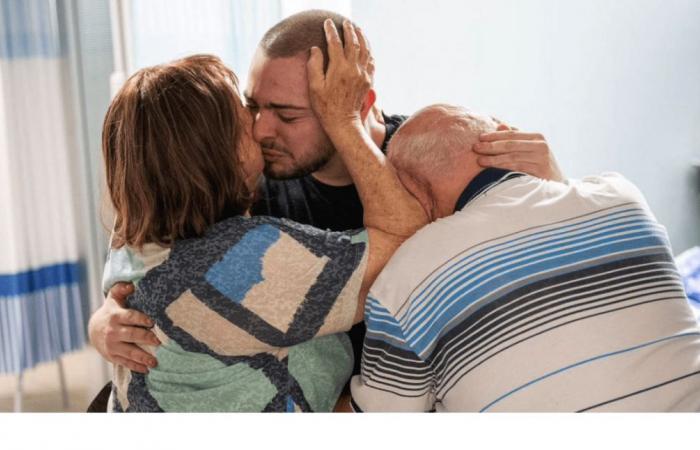Post-October 7 health crisis: An outdated healthcare system facing war trauma
Israeli society is facing an unprecedented health crisis, revealing the limits of a healthcare system faced with massive needs for physical and psychological rehabilitation. At the heart of this turmoil, three particularly vulnerable groups emerge: released hostages, their families, and isolated soldiers mobilized in the conflict.
The heavy price of former hostages
The recent report from the Hostages and Missing Families Forum paints an alarming picture of the situation of the released hostages. These survivors, described as prisoners of a “twilight zone”, bear the profound after-effects of their captivity. The physical consequences are multiple: severe malnutrition, chronic gastrointestinal disorders, skin conditions, and worsening of pre-existing pathologies. For many, this damage proves irreversible.
The story of Yocheved Lifshitz illustrates the brutality of this experience. Released after 17 days of captivity due to her critical state of health, she testifies: “My illness has become my salvation. I lost 5 kilos, my blood pressure dropped. Fifty more days, and I came back in a coffin. »
The family shockwave
The trauma spreads well beyond the direct victims. The experience of Carmit Palty Katzir is a poignant example: faced with the murder of her father, the kidnapping of her mother and her brother, then the latter’s death in captivity, she found it impossible to resume a normal life. “How can I focus on rehabilitating others while I am fighting for my own survival? » confides this rehabilitation professional.
Lone soldiers: the forgotten ones of the system
The situation of isolated soldiers reveals another major flaw in the system. Of the 13,000 mobilized since the start of the conflict, barely 500 have received the necessary psychological support. This deficiency has already had tragic consequences, as evidenced by the suicide of Sergeant Vladislav Sergienko, leaving behind a young family.
A call for systemic reform
Faced with this crisis, experts, including Professor Hagai Levine, are calling for a complete overhaul of the care system. Their recommendations include:
– The creation of a national rehabilitation program
– The extension of psychological support services
– The establishment of systematic medical monitoring
– Strengthening support for families
– A multidisciplinary approach integrating physical and psychological care
“The situation is unprecedented,” emphasizes Professor Levine. “The government must review its priorities. The resources exist, but their current allocation neglects the health and recovery of victims. »
A society in search of healing
Dr Einat Yehene, specialist psychologist, highlights the societal extent of the trauma: almost 50% of the population suffers from emotional distress linked to the hostage crisis. This collective shock wave demands a response equal to the challenge, combining therapeutic innovations and profound structural reforms.
Jforum.fr
 |
I like this:
I like loading…
The JForum editorial team will automatically remove any anti-Semitic, racist, defamatory or insulting comment, or which contravenes Jewish morality.
- -







